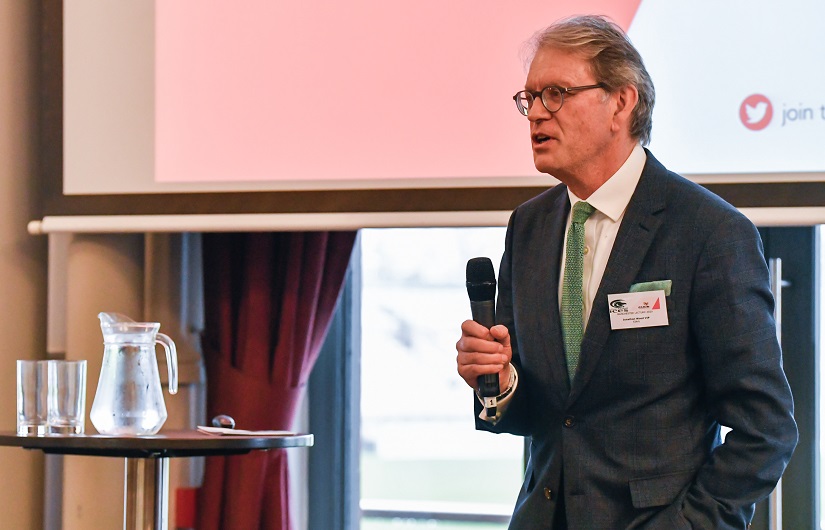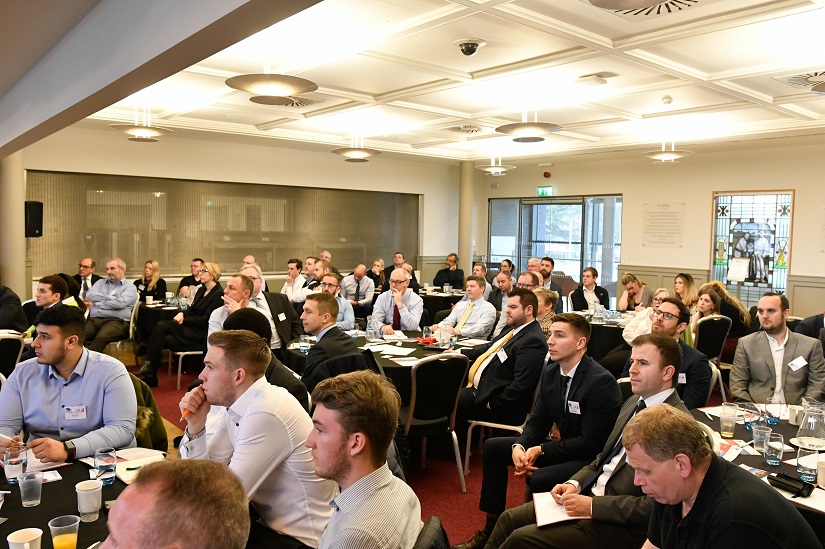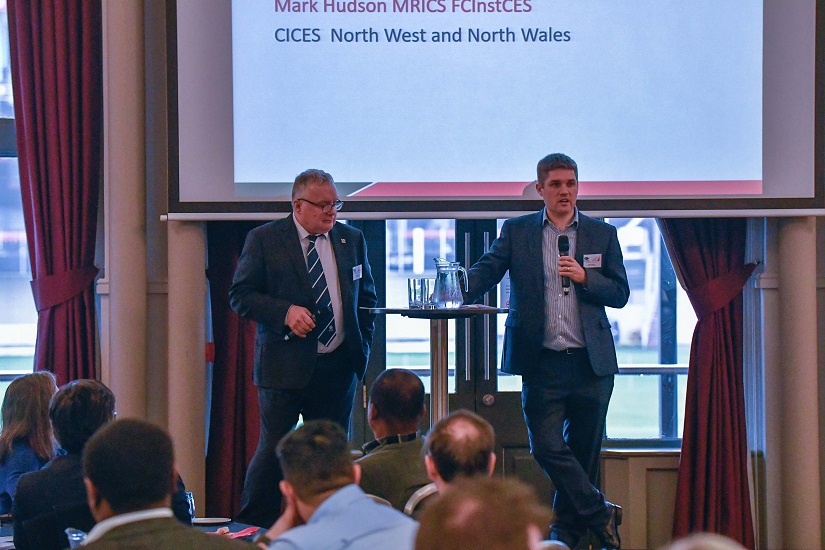CIArb News
Manchester Lecture 2020
28 Jan 2020
By Richard Barnes BSc (Hons) MSc FRICS FCIArb
On 23 January 2020, the Chartered Institution of Civil Engineering Surveyors (CICES) and CIArb hosted the Manchester Lecture at the home of Lancashire Cricket, the Pavilion, Emirates Old Trafford.
The theme of the event was fact, fiction and collaboration with a specific focus on construction law, contracts, and dispute resolution.
The welcome address was provided by Jonathan Wood MCIArb, Chair of the Board of Trustees (CIArb), with talks by Rosemary Jackson QC of Keating Chambers, who provided an insight into her experiences of mediation in Cyprus, how she was able to gently help people see issues in an unbiased way and in turn helped those parties to collaborate and focus on the future to enable them to resolve their issues.

The welcome address was provided by Jonathan Wood MCIArb, Chair of the Board of Trustees (CIArb).
That was then followed by Oliver Gregory and Lauren Holland of the CICES 2040 forum, who set out the challenges for the future of the industry from a younger person’s perspective. They explained that the industry was struggling to recruit, paper heavy and focusing on out of date solutions. They demonstrated that the commercial function of the construction industry was slow to embrace change compared with other parts of the industry, and that technology should be embraced not to replace people but to complement them. They left the audience with the proposition that we need to reconsider contracts, data collection and IP. Perhaps more importantly as an industry we need to consider training up “Data Engineers” and consider collaborative Hackathons to resolve many of the issues within the industry. Finally, the audience was requested to support initiatives such as the DEC curriculum and STEM to ensure that there will be a new generation of construction professionals.
Andrew Singer QC MCIArb of Kings Chambers provided an excellent session acknowledging that collaboration is probably the furthest thing from parties' minds at the start of a dispute. However he reminded attendees of the benefits of collaboration in an ADR process, that parties were free to agree or vary the procedure in a collaborative way. The advantages of which were that parties retain control of the process and did not face the prospect of losing control of their destiny. Andrew used the example of his judgement in the case of A v B (2018) EWHC 3366 (TCC) to demonstrate the court's support for ADR process.
Professor Jason Underwood of the University of Salford provided a session titled Effective Collaboration to Deliver the Digital Built Environment. This talk provided a review of the industry, the need for improvement and the UK government’s commitment to improvement. Jason introduced the studies which determined that the transformation was mainly about sociology and that true collaboration is based upon trust, which, according to Rousseau et al (1998), is a ‘psychological state comprising the intention to accept vulnerability based upon positive expectations of the intentions or behaviour of another’. He introduced the audience to emotional intelligence (EI), interrelationships between the generations, their behaviours, and how different generations relate in the workplace.

The final session was delivered by Dr Franco Mastrandrea C.Arb FCIArb of HKA who explained the what, who, how and when of Causation in Delay claims. It was a challenging session, with lots of philosophical questions based upon simple scenarios, the answers were however much more complex!
The event was closed by Bill Pryke, CEO of CICES, who stated that there had been an excellent turn out and thanked all for attending and supporting the event.
The day provided an excellent example of collaboration between the two institutions and it is hoped that this and similar initiatives will be run again, not only in the North West but around the globe.

12 Apr 2024
Significant progress on Advisory Centre for International Investment Law at UNCITRALIn 2017, UNCITRAL Working Group III (WGIII) was launched and was tasked with working on procedural reform of the investor state dispute settlement (ISDS) system. From 1-5 April 2024, Ciarb participated in the 48th session of WGIII in its capacity as an observer delegate.
12 Apr 2024
A promising future: Strengthening mediation through diversityWe speak to mediator and Imam Ibrahim Hussain MCIArb about mediation’s bright future, and why diversity strengthens mediation.
12 Apr 2024
RIDW24: Construction Arbitration Trends and Key TakeawaysCristen Bauer, Ciarb's Head of Policy, highlights a few key takeaways from the discussions at Riyadh International Disputes Week 24 (RIDW24)